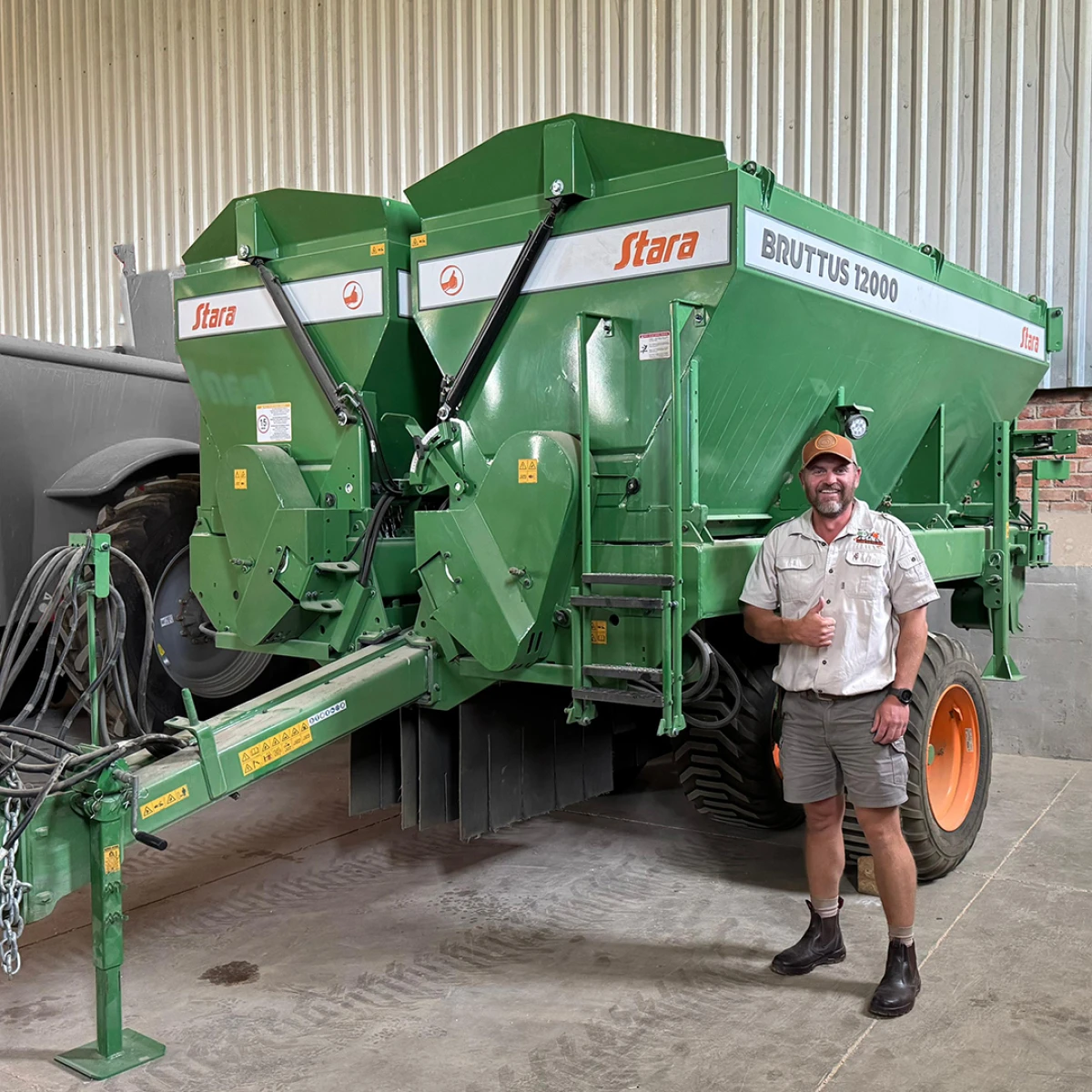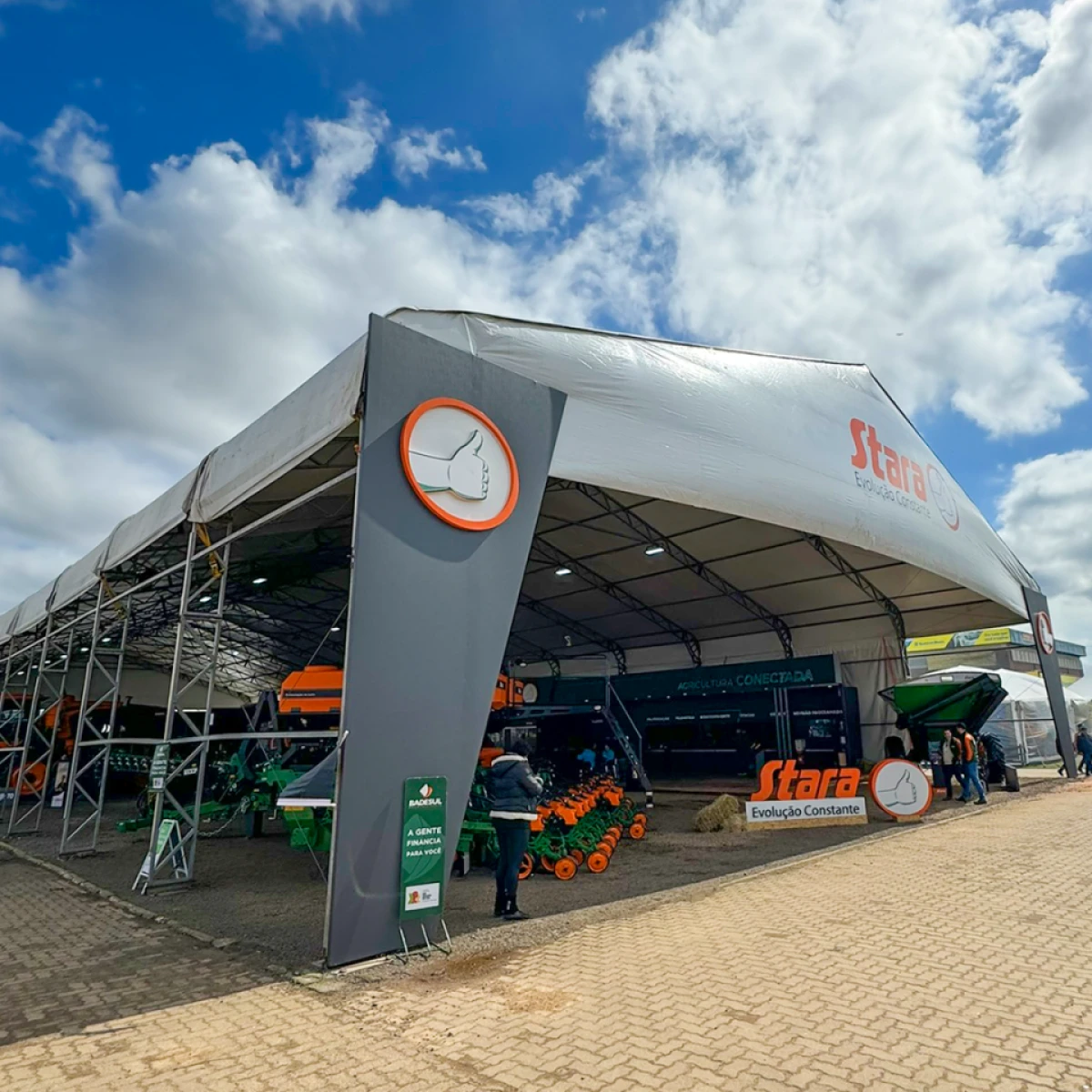More than manufacturing agricultural machinery with excellence and delivering quality service, Stara fosters an organizational culture grounded in social and environmental responsibility. In its factories, the company integrates sustainability and innovation, engaging its employees in every step of the process.
Preserved nature: a link between industry and ecosystem
Amid its industrial infrastructure, Stara in Não-Me-Toque maintains a Permanent Preservation Area (PPA) of 8.36 hectares, composed of native trees, and focused on conserving the region biodiversity and water resources. The area is home to a spring that feeds a local stream and serves as a refuge for birds, mammals, and reptiles.
According to Derson André Gehlen, Environmental Management Manager, the preservation of the area is intrinsically linked to collective care. This PPA is alive, and our employees are aware of the role they play in keeping this space balanced and protected. They experience this environment in their daily work at the company," he emphasizes
Employees as protagonists of change
At Stara, sustainability is not an isolated action, but a collective effort. The company continuously invests in raising employees’ environmental awareness, encouraging responsible practices across all areas — from offices to the manufacturing line.
Selective waste collecting is one of the pillars of this policy, with clear guidance on residue recycling: paper, plastic, metal, organic, and contaminated. We strongly emphasize the importance of this recycling with the entire team. The collection is carried out daily by the Environmental team, but the real impact comes from the active participation of the employees," Gehlen emphasizes.
In addition, many recyclable or reusable materials — such as wood, copper, paper, and plastic — are reintegrated into the operation. An example of this is the in-house workshop responsible for refurbishing over 700 pallets per month, returning them to industrial use.

Water Reuse: Technology in the Service of Consciousness
The rational use of water is another priority. The factory in Não-Me-Toque, for example, has a rainwater harvesting cistern with a capacity of 1.7 million liters. Collected in one of the factory buildings where agricultural machinery is assembled, this water is treated and used in restrooms, machine testing, irrigation, and cleaning, saving 36,000 liters per day from the artesian wells.
Additionally, the rinse water from the painting process is recycled through reverse osmosis, allowing for the reuse of 80% of the volume — approximately 18,000 liters of clean water per day. These technologies are presented and explained to the teams, strengthening environmental education in the workplace.
The company also has treatment stations for sanitary and industrial effluents, whose processes undergo regular analysis to ensure their efficiency and guarantee safe disposal.
Co-processing and residue responsibility
Stara also stands out for the proper disposal of contaminated waste, approximately 80% of which is sent for co-processing at the Proamb facility, where it is transformed into alternative fuel for the cement industry.
In total, 188.09 tons of paper and plastic were recycled in 2024, including the factories in Não-Me-Toque, Carazinho, and Santa Rosa. These results are the outcome of collective engagement that goes beyond numbers: it is about building a culture focused on reducing environmental impact and promoting conscious reuse.
After all, as Derson points out, environmental actions gain strength when they involve everyone in the organization. “We have a department dedicated to sustainability, but our true differentiator lies in everyone's participation. If everyone develops this awareness, it becomes part of the culture. We are constantly promoting discussions, training sessions, and improvements. "Sustainability has to be in our DNA — because none of us is as good as all of us together," he states.

Social Impact: awareness that goes beyond the factory walls
In addition to exemplary environmental practices, Stara also stands out for the positive impact it creates in the lives of its employees and the surrounding community. Employee involvement in sustainable actions goes beyond the factory walls: the ecological awareness promoted by the company extends into homes, encouraging sustainable habits within families and multiplying the impact of good practices.
The company continuously invests in the training and environmental education of its employees, promoting awareness initiatives that help build a culture of collective responsibility. Environmental responsibility starts here, but it goes beyond. It is common to see behaviors that originated within the company being replicated at home — from proper waste recycling to the reuse of materials. "It's a cycle of awareness and learning that spreads," says Gehlen.
In addition, the commitment to the environment is reflected in community support actions, such as making treated water from the factory’s cistern available to the Fire Department in emergency situations. These are actions that reinforce the company’s social role and demonstrate that sustainability can indeed create shared value.










